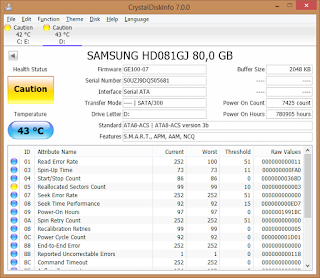
I have since removed RansomFree, eliminating that program from the list of possible culprits. I wrote to Cybereason but never received a reply. On previous occasions - but not this time around - the files found to be damaged were ALL files created by Cybereason RansomFree. Once the machine rebooted, I ran a checkdisk on both "L" and "X" and BOTH drives were still dirty and needed to be fixed by running ChkDsk manually. The last time I received the "disk problem" message and re-booted, both drive "L" and drive "X" (but not "C") were supposedly checked and fixed BUT Here are my observations for THAT machine: On a second machine (one with only 3 partitions - each on their own physical drive) it might be easier to track down. I am quite sure it has "something" to with do un-clean shut downs.

Thus S.M.A.R.T would not catch errors in the MFT which are the most common causes for the drive errors Windows detects. Also, S.M.A.R.T only looks at the hardware characteristics of the drive and, unlike the "Is Dirty bit" does not look at the file system. (To be honest, I wouldn't be sorry if it doesn't).Ĭome to think of it, I think S.M.A.R.T attributes (which are the basis of CrystalDiskInfo's diagnostics) are set on a 'per physical drive' basis whereas the "Is Dirty bit" works on a 'per partition' basis. Unfortunately, this is not a problem that is easily replicated so I will have to wait until is happens again. I am curious how it will react when a drive contains multiple PARTITIONS and only one of them has the "IsDirty" bit set.

One thing about CrystalDiskInfo: It gives you an icon in the task tray for each physical DRIVE. I have CrystalDiskInfo running but did not think of checking it the last time I encountered this error. This error shows up in the notification area on the right-hand side of the screen. Of course, I have to look at each one of the 14 drives to find it. After it repairs the drive and Windows starts up, there will typically be a file called "found000" on the offending drive. If you leave it alone and just re-boot the computer, it will, on the next boot, run a CHKDSK on the faulty drive (so Windows KNOWS which drive is faulty - so why can't it tell me?). My problem is similar to the ""Windows detected a hard disk problem" error - just the Windows 10 version thereof.


 0 kommentar(er)
0 kommentar(er)
